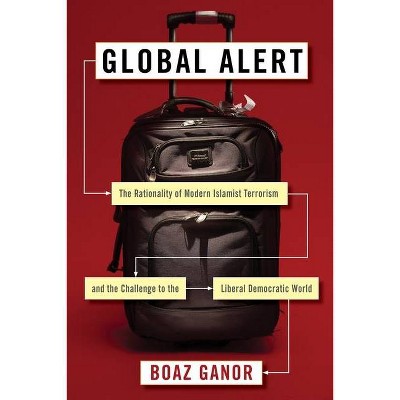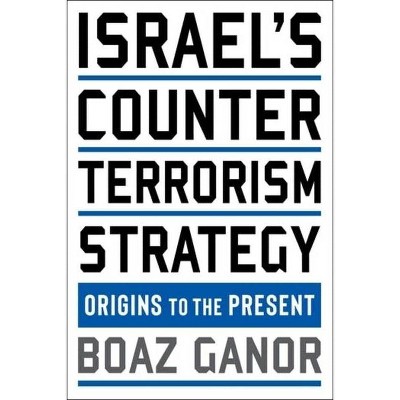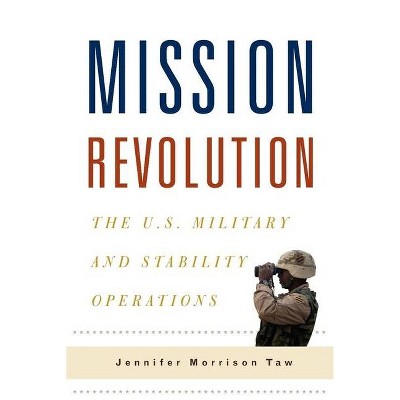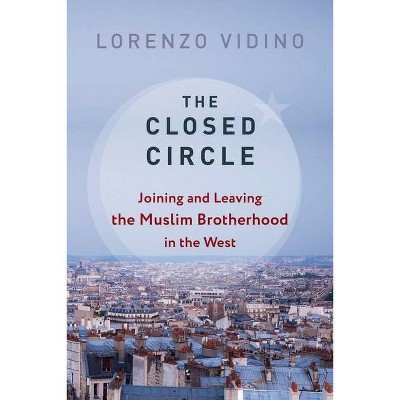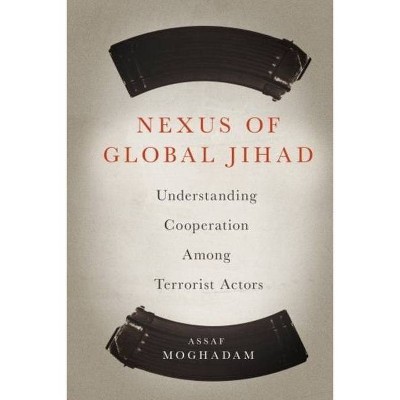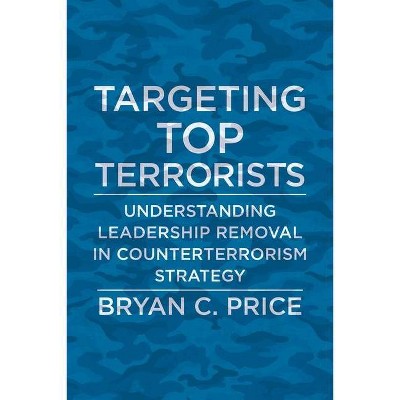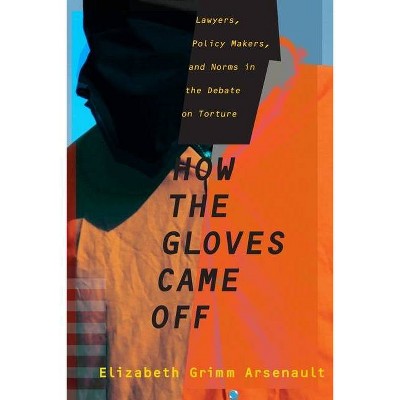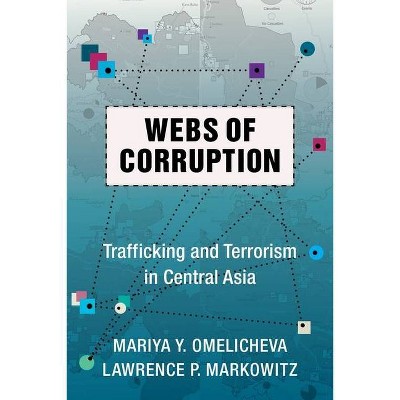Triadic Coercion - (Columbia Studies in Terrorism and Irregular Warfare) by Wendy Pearlman & Boaz Atzili (Paperback)
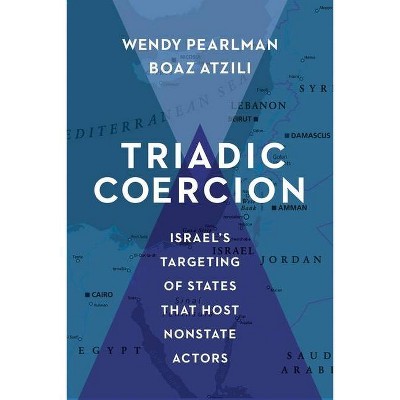
Similar Products
Products of same category from the store
AllProduct info
<p/><br></br><p><b> About the Book </b></p></br></br>As states find themselves in conflicts with nonstate actors, they often target other states that harbor or aid these challenging opponents. Wendy Pearlman and Boaz Atzili investigate this strategy, which they term <i>triadic coercion: </i> why states pursue it and the conditions under which it succeeds, across seventy years of Israeli history.<p/><br></br><p><b> Book Synopsis </b></p></br></br>In the post-Cold War era, states increasingly find themselves in conflicts with nonstate actors. Finding it difficult to fight these opponents directly, many governments instead target states that harbor or aid nonstate actors, using threats and punishment to coerce host states into stopping those groups. <p/>Wendy Pearlman and Boaz Atzili investigate this strategy, which they term <i>triadic coercion</i>. They explain why states pursue triadic coercion, evaluate the conditions under which it succeeds, and demonstrate their arguments across seventy years of Israeli history. This rich analysis of the Arab-Israeli conflict, supplemented with insights from India and Turkey, yields surprising findings. Traditional discussions of interstate conflict assume that the greater a state's power compared to its opponent, the more successful its coercion. Turning that logic on its head, Pearlman and Atzili show that this strategy can be more effective against a strong host state than a weak one because host regimes need internal cohesion and institutional capacity to move against nonstate actors. If triadic coercion is thus likely to fail against weak regimes, why do states nevertheless employ it against them? Pearlman and Atzili's investigation of Israeli decision-making points to the role of strategic culture. A state's system of beliefs, values, and institutionalized practices can encourage coercion as a necessary response, even when that policy is prone to backfire. <p/>A significant contribution to scholarship on deterrence, asymmetric conflict, and strategic culture, <i>Triadic Coercion</i> illuminates an evolving feature of the international security landscape and interrogates assumptions that distort strategic thinking.<p/><br></br><p><b> Review Quotes </b></p></br></br><br>A significant and multifaceted accomplishment. A must-read for scholars of the Israeli-Arab Conflict, it innovatively blends realist and constructivist approaches.--Mediterranean Politics<br><br>Exceptionally interesting, informative, and well-crafted.--H-Diplo<br><br>The book is impressive: it offers a sustained and fascinating argument on a major topic.--ID: International Dialogue<br><br>A foundational work on coercion and nonstate actors on which related studies will build for a long time to come.--Peter Krause "Journal of Palestine Studies "<br><br>A valuable scholarly contribution. . . . It would be wise for policy makers and analysts to pick up a copy of <i>Triadic Coercion</i> to learn what conditions are necessary for deterring state-sponsored terrorism, and what are self-defeating.--Hari Prasad "South Asian Voices "<br><br>It offers the most sophisticated analysis of triadic coercion to date, going above and beyond the one-dimensional approaches that have traditionally characterized Israeli policy.--Rob Geist Pinfold "Israel Studies Review "<br><br>An important contribution to the literature on counterterrorism.--Perspectives on Terrorism<br><br>This seminal work will prove invaluable to area specialists and to those interested in international and comparative politics generally. Highly recommended.--Choice<br><br><i>Triadic Coercion </i>will serve as a milestone in international relations theory and especially in the realms of deterrence and coercion theories. Pearlman and Atzili's book makes a significant contribution to the literature on asymmetrical conflicts and counterinsurgencies and to literature on the conflicts between Israel and its neighbors.--Ami Pedahzur, University of Texas at Austin<br><br>Both policy makers and scholars talk a lot about deterring state sponsors of terrorism, but until now we have lacked a serious study of the topic. With theoretical sophistication and careful empirical research, Pearlman and Atzili show that this approach can work, but paradoxically only if the host regime being targeted is strong. This is a major contribution to understanding an important topic.--Robert Jervis, Adlai E. Stevenson Professor of International Politics, Columbia University<br><br>Two accomplished political scientists tackle an issue that has received little attention in the literature: dealing with nonstate actors by targeting their hosts. They find that Israel tends to adopt this strategy far more than Turkey and India, despite its mixed results, particularly when regimes of targeted states are weak. They persuasively attribute this to 'strategic culture' which often trumps sound decisions. A thoughtful and informative contribution.--Shibley Telhami, Anwar Sadat Professor for Peace and Development, University of Maryland<br><p/><br></br><p><b> About the Author </b></p></br></br>Wendy Pearlman is associate professor of political science at Northwestern University. She is the author of <i>Occupied Voices: Stories of Everyday Life from the Second Intifada</i> (2003); <i>Violence, Nonviolence, and the Palestinian National Movement</i> (2011); and <i>We Crossed a Bridge and It Trembled: Voices from Syria</i> (2017). <p/>Boaz Atzili is associate professor and director of the Doctoral Studies Program in the School of International Service at American University. He is the author of <i>Good Fences Bad Neighbors: Border Fixity and International Conflict</i> (2012) and coeditor of <i>Territorial Designs and International Politics: Inside-Out and Outside-In</i> (2018).
Price History
Price Archive shows prices from various stores, lets you see history and find the cheapest. There is no actual sale on the website. For all support, inquiry and suggestion messagescommunication@pricearchive.us
